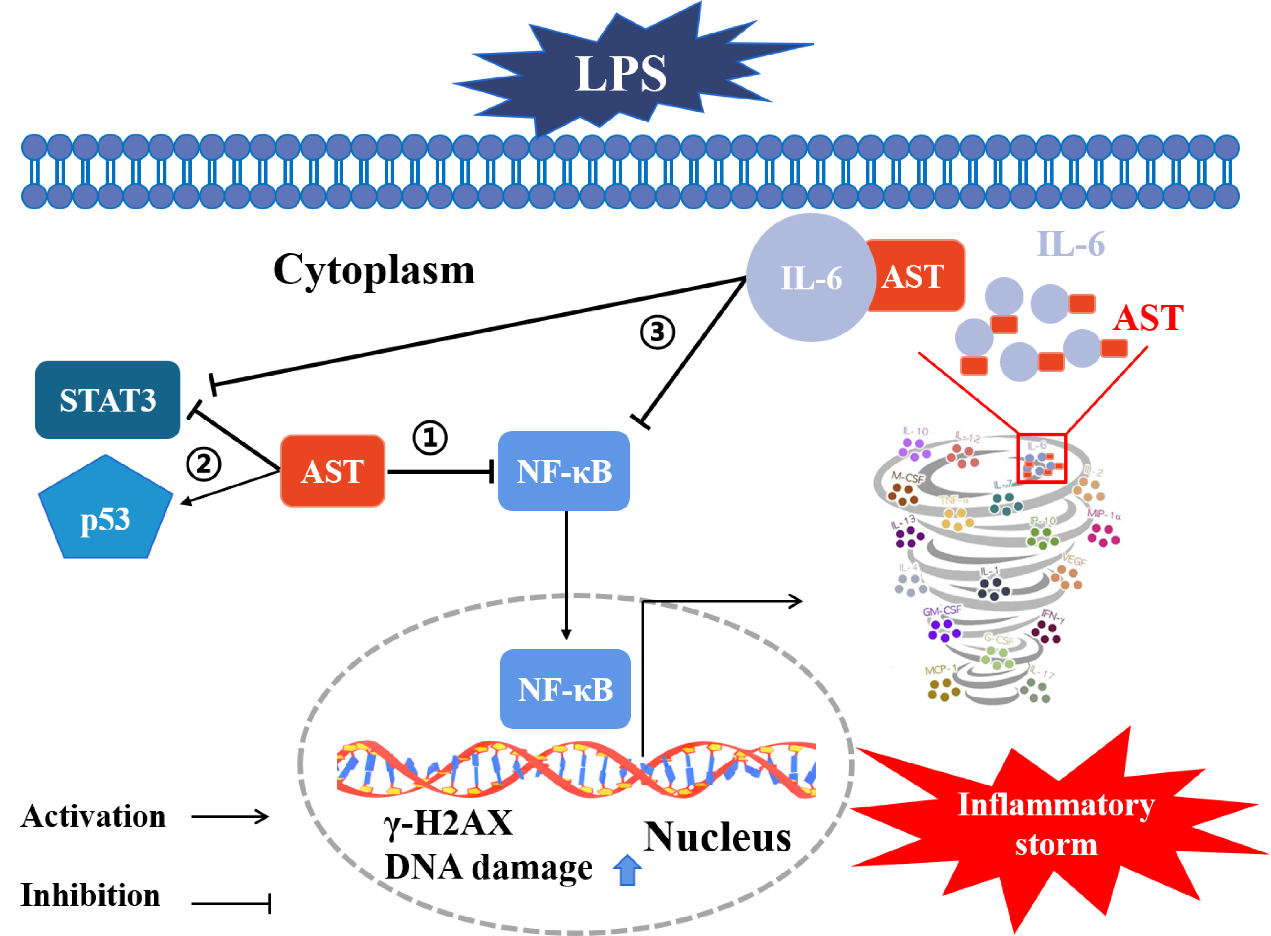New Study Uncovers Astaxanthin's Anti-Inflammatory Potential Against LPS-Induced Inflammation
|
Recently,a research team led by Prof. HUANG Qing at Hefei Institutes of Physical Science of Chinese Academy of Sciences found a new mechanism by which Astaxanthin (AST) can target IL-6 and thus reduce LPS-induced adverse inflammatory response in macrophages.
The research results have been published in Food & Function.
Astaxanthin is a kind of natural substance with strong antioxidant effect,the latest research shows that it may also have a certain anti-inflammatory effect,but its specific mechanism is unknown.
In this study,researchers selected human monocytic leukemia cell-derived macrophages (THP-1) as experimental cells and lipopolysaccharide (LPS) as inflammatory stimuli to study the molecular mechanism of astaxanthin's anti-inflammatory effect.
They found that AST intervention significantly decreased LPS-induced oxidative stress,boosted cell repair,and reduced inflammatory cytokine damage by substantially inhibiting NF-κB translocation and activation,activating p53 and inhibiting STAT3. Through further analysis and experiments,the team confirmed that AST directly binds to IL-6,disrupting the inflammatory feedback loop and potentially preventing inflammatory storms.
The results suggest that the direct binding of astaxanthin to IL-6 can inhibit the positive feedback loop of inflammatory factors,which may inhibit the inflammatory storm caused by adverse inflammatory reactions.
"Our study provides experimental and theoretical basis for astaxanthin as a dietary supplement with anti-inflammatory or immunomodulatory functions,"said WU Yahui,member of the team.

Schematic diagram of the anti-inflammatory effects of AST. (Image by WU Yahui)
